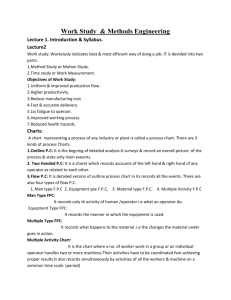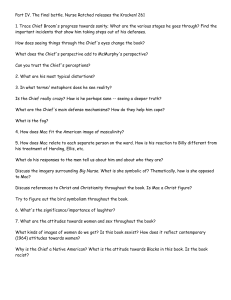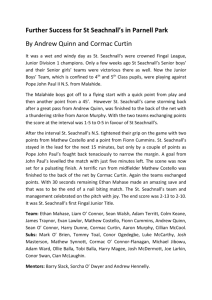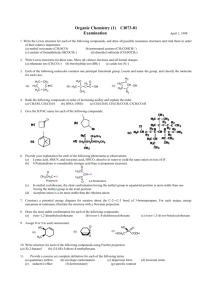New Corporate Forms: Flexible Purpose
advertisement
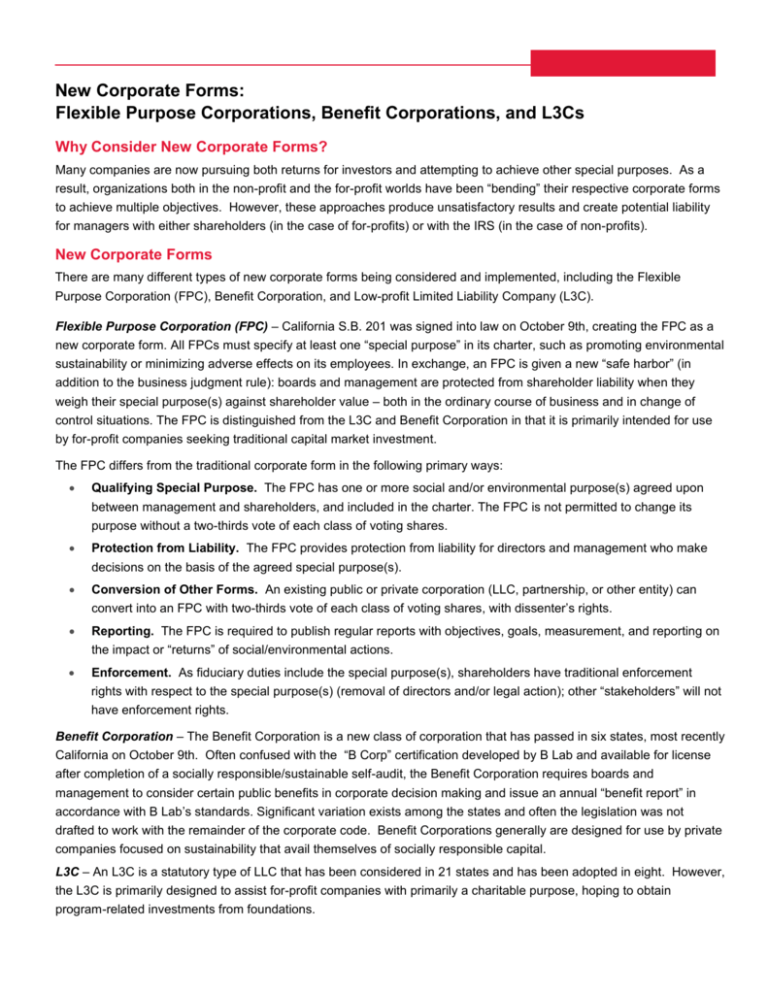
New Corporate Forms: Flexible Purpose Corporations, Benefit Corporations, and L3Cs Why Consider New Corporate Forms? Many companies are now pursuing both returns for investors and attempting to achieve other special purposes. As a result, organizations both in the non-profit and the for-profit worlds have been “bending” their respective corporate forms to achieve multiple objectives. However, these approaches produce unsatisfactory results and create potential liability for managers with either shareholders (in the case of for-profits) or with the IRS (in the case of non-profits). New Corporate Forms There are many different types of new corporate forms being considered and implemented, including the Flexible Purpose Corporation (FPC), Benefit Corporation, and Low-profit Limited Liability Company (L3C). Flexible Purpose Corporation (FPC) – California S.B. 201 was signed into law on October 9th, creating the FPC as a new corporate form. All FPCs must specify at least one “special purpose” in its charter, such as promoting environmental sustainability or minimizing adverse effects on its employees. In exchange, an FPC is given a new “safe harbor” (in addition to the business judgment rule): boards and management are protected from shareholder liability when they weigh their special purpose(s) against shareholder value – both in the ordinary course of business and in change of control situations. The FPC is distinguished from the L3C and Benefit Corporation in that it is primarily intended for use by for-profit companies seeking traditional capital market investment. The FPC differs from the traditional corporate form in the following primary ways: Qualifying Special Purpose. The FPC has one or more social and/or environmental purpose(s) agreed upon between management and shareholders, and included in the charter. The FPC is not permitted to change its purpose without a two-thirds vote of each class of voting shares. Protection from Liability. The FPC provides protection from liability for directors and management who make decisions on the basis of the agreed special purpose(s). Conversion of Other Forms. An existing public or private corporation (LLC, partnership, or other entity) can convert into an FPC with two-thirds vote of each class of voting shares, with dissenter’s rights. Reporting. The FPC is required to publish regular reports with objectives, goals, measurement, and reporting on the impact or “returns” of social/environmental actions. Enforcement. As fiduciary duties include the special purpose(s), shareholders have traditional enforcement rights with respect to the special purpose(s) (removal of directors and/or legal action); other “stakeholders” will not have enforcement rights. Benefit Corporation – The Benefit Corporation is a new class of corporation that has passed in six states, most recently California on October 9th. Often confused with the “B Corp” certification developed by B Lab and available for license after completion of a socially responsible/sustainable self-audit, the Benefit Corporation requires boards and management to consider certain public benefits in corporate decision making and issue an annual “benefit report” in accordance with B Lab’s standards. Significant variation exists among the states and often the legislation was not drafted to work with the remainder of the corporate code. Benefit Corporations generally are designed for use by private companies focused on sustainability that avail themselves of socially responsible capital. L3C – An L3C is a statutory type of LLC that has been considered in 21 states and has been adopted in eight. However, the L3C is primarily designed to assist for-profit companies with primarily a charitable purpose, hoping to obtain program-related investments from foundations. Susan H. Mac Cormac Partner San Francisco (415) 268-6060 smaccormac@mofo.com Susan Mac Cormac is a partner in the Corporate Group of Morrison & Foerster’s San Francisco office. She serves as co-chair of the firm’s 550-lawyer Business Department, and co-chair of the Cleantech Group. Ms. Mac Cormac has extensive experience representing start-up to late-stage private companies primarily in the Cleantech or sustainable space. She provides corporate and finance advice in connection with mergers, acquisitions, asset purchases and sales, reorganizations, joint ventures, and equity and debt financings. She regularly advises boards of private and public companies, special committees, and CEOs on corporate governance as it relates to sustainability and Corporate Social Responsibility (“CSR”) issues and has joined the faculty (teaching on issues of sustainability and corporate governance) at both the Stanford Director’s College and the Northwestern Corporate Counsel Institute. Ms. Mac Cormac also represents nonprofit corporations involved with Sustainability and CSR, providing advice to their boards on fiduciary issues, conflicts of interest, and other corporate matters. Ms. Mac Cormac’s representative Cleantech and sustainable clients include Arcadia, ClimateEarth, driptech, ElectraTherm, enXco, OneSun, and Revolution Foods. Her representative sustainable and social enterprise company clients include BeDo, Digital Divide Data, 18 Rabbits, and SourceTrace. Her representative public company clients include First Solar, Fujitsu, and Konica-Minolta. Her nonprofit clients include the Biomimicry Institute, Business for Social Responsibility, Goodwill, Natural Heritage Institute, Pacific Forest and Watershed Lands Stewardship Council, and Rising Sun Energy. Her impact investor and venture fund clients include Capricorn/Virgo, Brightpath Capital Partners, Pacific Community Ventures, RSF Social Finance, and OPIC. After working in New York for three years, Ms. Mac Cormac joined the firm as an associate in 1997 and became a partner in 2001. Ms. Mac Cormac was born in Davidson, North Carolina, and graduated in 1988 from Williams College with a degree in Political Economy. She received her J.D. and LL.M. degrees from Duke University School of Law in 1993. Ms. Mac Cormac lives in the Presidio National Park with her husband and three young boys (Eddie, Alex, and Matthew). Ms. Mac Cormac was recognized by the Daily Journal as one of the Top Female Attorneys in California (May 2011) and as one of the Top 25 Clean Tech Lawyers in California (March 2011). She was named to The American Lawyer's "45 Under 45" list of outstanding women lawyers (January 2011) and selected by her peers for Best Lawyers in America 2011. Ms. Mac Cormac was also recognized by clients in Legal 500 United States 2009 and 2010 for her expertise working with venture capitalists and emerging companies. Clients say "you cannot get a better corporate counsel," Ms. Mac Cormac "'understands the big picture, could not be more responsive, and understands the business." Ms. Mac Cormac serves as co-chair of the Working Group and has spent 500 pro bono hours over the past three years drafting a new corporate form for California; now SB201. The new form of for-profit corporation, also known as the Flexible Purpose Corporation, encourages and expressly permits companies to be formed or converted from other forms to pursue one or more purposes in addition to creating economic value for shareholders, pursuant to lawful acts or activities for which a corporation may otherwise be organized under the California General Corporation Law. Ms. Mac Cormac is a co-chair of the Clean Technology & Climate Change Committee for the ABA Section of Science & Technology Law. She is on the Board of Directors of the Biomimicry Institute. She is admitted to practice in both California and New York.
